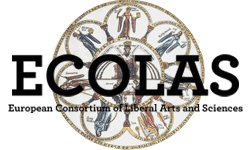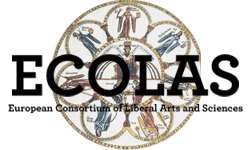ECOLAS Manifesto 2021
As the COVID 19 pandemic lifts, higher education in Europe stands at a crossroads: should universities return to the massive and narrow, subject-focused undergraduate (Bachelor’s) degrees of before the lockdown or should they embrace the lessons of this experience and take a serious look at higher education in Europe? The complexity of the pandemic has demonstrated that university education is not only about the transfer of knowledge. What was missed the most during more than a year of online education was small-scale human interaction between teachers and students as well as between students. We must ask: does our current undergraduate education or Bachelor Degree respond adequately to the contemporary needs of societies threatened by economic, environmental, and political challenges?; does it provide the skills and personal traits that will strengthen democratic values in the EU?
The answer to such questions must be an emphatic “No”. In order to realize fully their capabilities, instead of mass-scale and narrow subject studies, today’s Bachelor students require student-centered learning, engagement with multiple disciplines and hands-on research experience. Only in this way are they able to acquire the breadth of knowledge and the depth of learning that leads to moral, non-extremist viewpoints as well as the kind of creative problem-solving that our institutions increasingly seek and that the well-being of democracies demand. Such an education can be defined as one that:
- Allows students to direct themselves gradually toward their main interests;
- Offers them the means and opportunities to solve problems creatively, collaboratively, and from multiple disciplinary perspectives;
- Teaches them to communicate their findings clearly and persuasively;
- Highlights the ethical dimensions in every study discipline;
- Provides students with the tools to turn theory into practice;
- Engages them directly in the task of sustaining democracy;
- Helps them to acquire the soft intellectual and personal skills that business and industry require to meet professional challenges;
- Prepares young people for future academic and professional careers fortified with moral responsibility.
Since the declaration of the Bologna process in 1999, small-scale, multidisciplinary, efficient undergraduate programmes offering Bachelor Degrees have emerged throughout Europe to provide just such an education. These liberal arts programmes, heirs to the traditional European Artes Liberales, offer thoughtful ways to renew undergraduate learning and have a record of proven success. It is here where the discovery and fostering of innovative pedagogical approaches including the latest technologies produce the skills and attitudes that business, industry and society-at-large will need in order to defend its democratic values and remain tolerant of minority and marginalized groups. We should be wary of claims that promote online education as a panacea. While the data indicate that massive online learning has been an asset during the pandemic, it is clearly of limited utility and serves, at best, as a supplement to the kind of education that will allow students to attain the intellectual agility, flexibility and critical thinking necessary for the 21st century.
European higher education finds itself at a critical crossroads. It is our intention to encourage educators and policy-makers to find the ways and the means to make this kind of contemporary undergraduate education more widely accessible to all. We believe that Bachelor Degree can be taught and designed efficiently and effectively where there is a will to do so. Therefore, we invite all those who value education as the engine of democracy and social well-being to join this effort. Now is the time to work together towards realizing the full potential of Europe’s future generations.




